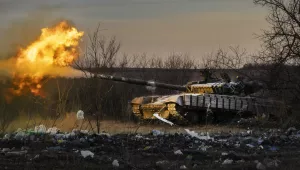Speaker: Christopher Lawrence, Assistant Professor, Science, Technology and International Affairs Program, E. Walsh School of Foreign Service, Georgetown University
Scholars of nuclear brinkmanship have long debated whether nuclear crises are dominated by a balance of resolve, or whether nuclear superiority may offset that balance in favor of the more technologically advanced competitor. Recent studies indicate the latter, suggesting that the high accuracy of modern strategic weapons may have ushered in a “new era of counterforce dominance.” The state that masters those weapons, they argue, can steel their resolve if they become confident in their ability to eliminate an adversary’s retaliatory nuclear forces in a disarming first strike.
Yet these counterforce enthusiasts overlook an important technological headwind: the complexity of advanced weapon systems can confound nuclear planners’ ability to predict their performance in a real nuclear exchange. This challenge is particularly acute for counterforce systems that cannot be tested in operational settings, and whose failure would bring catastrophic consequences on their user.
Drawing from scholarship in complexity theory and science and technology studies, The speaker argues that nuclear competitions are also beset by a balance of nuclear humility: States with more grandiose, technically demanding nuclear doctrines can be less confident in their knowledge, must work harder to retain their capabilities, and can hence be less certain in the success of their nuclear missions. More humble competitors may address their vulnerabilities with relatively modest innovation, and fret less over vagaries of the unknown. Crucially, the advantages and disadvantages of technological humility can run against those traditionally associated with the balances of capability and resolve.
The speaker illustrates this dynamic by constructing a Monte Carlo simulation of a counterforce strike with modern U.S. strategic missiles on China’s silo-based missile force. He shows that small variations in parameters that cannot be known to the attacker with certainty correspond to wide variation in strike outcomes. The resulting uncertainty in costs to the attacker complicates popular strategic theories of damage limitation.
Admittance is on a first come–first served basis. Tea and Coffee Provided.





